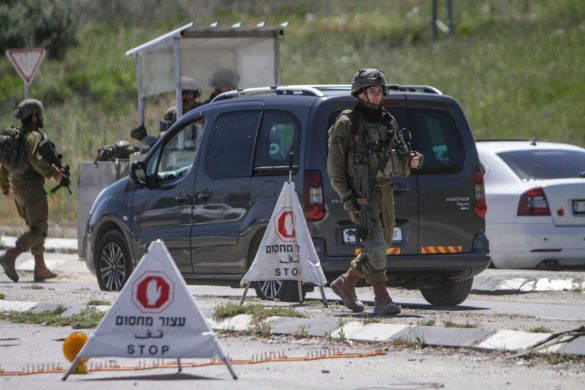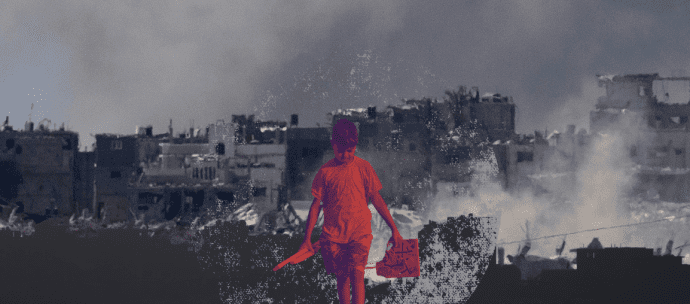Irakerne har fået pressefrihed, demokrati og større personlig frihed. Men de har også fået selvmordsbomber, sekterisk vold og en lokal aflægger af Al-Qaeda
BAGHDAD/DUBAI, 29 April 2013 (IRIN): US officials and others argue former Iraqi President Saddam Hussein was a “clear danger” to the Iraqi people and to the region, pointing to the two wars he instigated in the 1980s and 1990s, the execution of his political opponents and the atrocities he committed against his own people.
In an editorial this month in the Washington Post, Paul Wolfowitz argued Hussein’s removal by US-led forces saved many lives and prevented the completion of a “genocide” (folkedrab).
For Kurds in the north, who were victims of severe violations of human rights under Hussein’s rule, the invasion has brought a new sense of security. But for many others in the country, the opposite is true.
More than 111,000 Iraqis have been killed since 2003, according to the tracking group Iraq Body Count; most of these deaths occurred in 2006-2007, the worst period of sectarian violence in the last 10 years.
Security improved in subsequent years – from nearly 30,000 civilian deaths in 2006 to fewer than 10,000 in 2008, and fewer than 5,000 in 2009. In the years following, it stabilized at around 4,000 civilian deaths per year.
In 2011, nearly three-quarters of the population perceived themselves to be secure or very secure, according to the Iraq Knowledge Network survey.
However, civilian deaths increased by about 10 percent in 2012, after the withdrawal of American forces. Established insurgent groups, like al-Qaeda in Iraq, have been regaining strength, and new ones, like the Free Iraqi Army, have emerged. Anbar Province, the epicentre of the Sunni insurgency in 2007-2009, has become restive once more.
Sectarianism increasing
Under Hussein, power was concentrated in the hands of Sunni partisans; the end of Hussein’s rule brought new opportunities to the long-marginalized Shia majority.
But as Shiites have risen to power, sectarianism has become a major feature of Iraqi politics.
This is due, in part, to the decades of repressive policies seen under Hussein, but analysts also point a finger at US policies, which created a political system based on the repartition of power among three main groups: the Shiites, Sunnis and Kurds.
The US also sought to purge the government of members of Hussein’s Baath party, which many Sunnis saw as a move to alienate them.
“At his most vulnerable position, Saddam Hussein used sectarianism and nationalism as weapons against his internal enemies,” the Civil-Military Fusion Centre (CFC) wrote in a recent briefing on the risk of a renewed breakout of large-scale violence, adding:
“Today’s Iraqi Shiite parties and government appear to be doing far worse as governmental rule is justified on a sectarian basis.”
This sectarianism has inspired many of the suicide bombings, kidnappings and terrorist attacks that have affected civilians in the past 10 years. According to CFC, “There is a legitimate, growing fear of civil conflict due to unaddressed grievances in Anbar and other Sunni-majority provinces.”
More freedoms
Despite the insecurity, some point to a new level of freedom, including increased personal rights, improved access to legal services and democratic structures in government.
“It is not just about access to basic services. People have other aspirations [now],” says Sudipto Mukerjee, deputy head of the UN Development Programme (UNDP).
“The whole issue of equal opportunities, access to decent jobs and [having a] voice is coming up much more strongly than ever before,” noted he.
But this, too, is a mixed blessing, countered by what many observers call a dysfunctional parliament and corrupt cabinet.
“Now, we can write whatever we want,” says journalist Safa Muhammed, stating:
“We are not afraid of saying anything or criticizing anyone. We have that freedom, but it’s useless. No matter how much you write, no one [in government] is listening or willing to make changes.”















